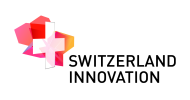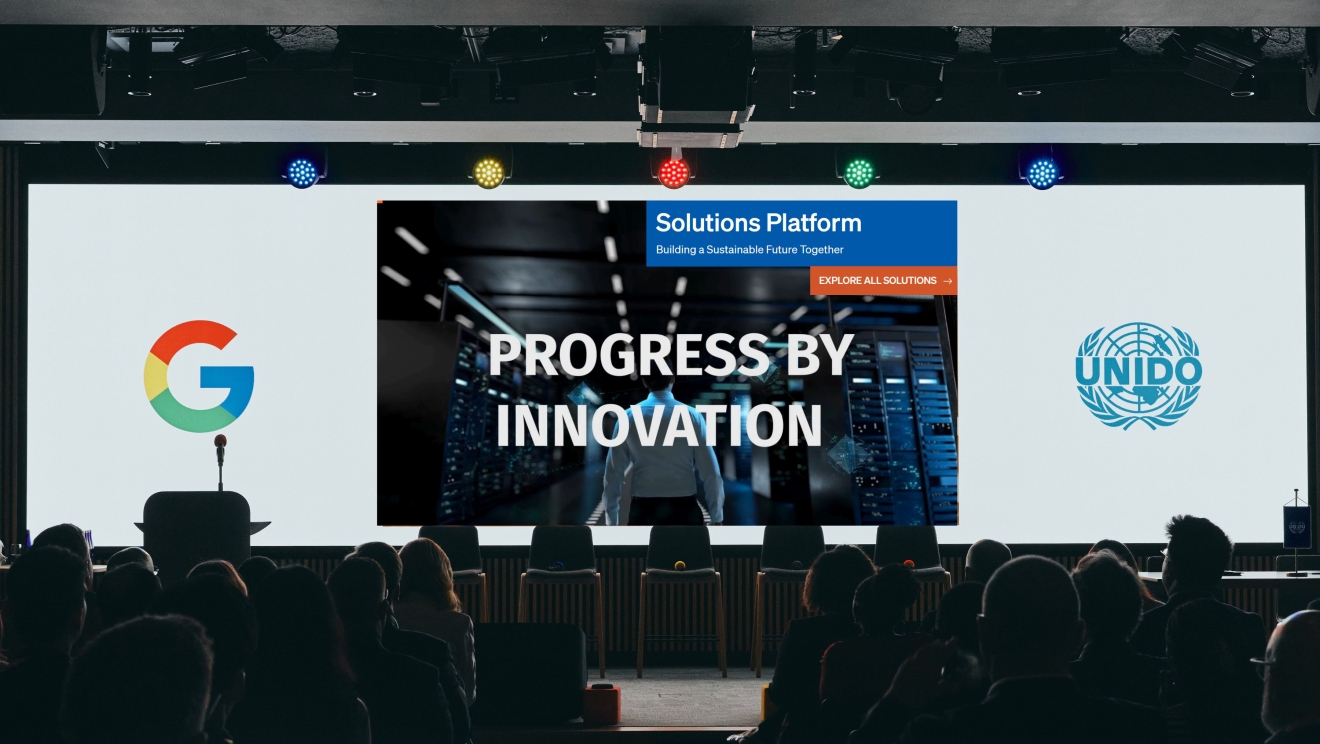Solutions Platform
Building a Sustainable Future Together
Vision
At UNIDO, we envision a world where innovation and collaboration drive sustainable industrial development, fostering resilient economies, clean energy and food security for all. Through the UNIDO Solutions Platform (USP), we integrate the expertise of diverse stakeholders and empower them to connect, innovate and implement solutions that create lasting global impact.
About UNIDO Solution Platform (USP)
The USP is a global platform designed to advance sustainable industrial development by enhancing UNIDO’s capacity to mobilize resources, forge partnerships, and scale effective solutions. It connects Member States, academia, and industry with scalable solutions that align with UNIDO’s mission and the Sustainable Development Goals (SDGs).
Unlike projects that are limited in scope and duration, the USP focuses on scalable solutions - proven strategies that address critical challenges such as ending hunger, stopping climate breakdown, and strengthening sustainable supply chains. These solutions are adaptable to different contexts, enabling a broader impact on sustainable industrial development. The USP unites UNIDO's various interventions into a coherent strategic framework for innovative and impactful partnerships.
Solutions for Sustainable Development

Digitally Transforming Supply Chains in the Coffee Industry
Discover how innovative digital solutions like Google's Earth Engine, AI, and Cloud are revolutionizing the coffee industry by driving sustainability and compliance with regulations like EUDR. Explore the transformative power of technology in enhancing the quality, value, and sustainability of coffee, while fostering essential public-private collaborations for a deforestation-free future.

Global Alliances for Advanced Manufacturing and AI in Industry
AIM Global’s key mission is to foster collaboration across a broad spectrum of stakeholders, including governments, industry leaders, the private sector, academia, and civil society.

Enhancing National Ecosystems for Digital Transformation in Industry
This solution addresses the challenge of underdeveloped ecosystems in many countries, which hampers their ability to effectively harness digital transformation and Industry 4.0 technologies.
Get involved and drive change
The USP connects you to a global network of stakeholders committed to sustainable industrial development. Explore opportunities, share your solutions, and make a meaningful impact. Here’s how different stakeholders can engage and benefit:
- Accelerated Project Delivery & Enhanced Visibility: The USP serves as a “marketplace” that connects scalable solutions with Member States, industry, donor and funding partners, and academia to address global challenges like hunger, climate action, and sustainable supply chains. It accelerates the integration of these solutions into (ongoing and new) projects, boosts visibility, and attracts new collaborators and resources, aiming at amplifying UNIDO’s global impact.
For a concrete example, see impressions from our recent solution workshop and session in Addis, with the Ethiopian Coffee and Tea Authority on our initial lighthouse solution, leveraging advanced digital solutions from Google/NGIS to digitally transform coffee supply chains, starting in Ethiopia: Lighthouse Solution Workshop in Ethiopia - Cross-Divisional Collaboration & Resource Mobilization: USP promotes structured collaboration between UNIDO departments and external partners, particularly the private sector. It is designed to facilitate the mobilization of traditional and non-traditional sources of funding, thereby enhancing UNIDO's capacity to implement effective and sustainable industrial solutions.
- Gain Access to Cutting-Edge Solutions: Leverage innovative solutions to address critical challenges such as sustainable supply chains, climate action, and food security.
- Utilize Capacity-Building Resources: Strengthen national capabilities and frameworks for sustainable industrial development through facilitated partnerships and the promotion of national projects.
- Request Solution Implementation: Nominate or request specific solutions to be implemented in your country or context, tailored to meet local needs and priorities.
- Showcase Your Solutions: Present your innovative industrial development solutions to a global audience, allowing you to discover new market opportunities and attract potential clients.
- Develop Strategic Partnerships: Collaborate with key stakeholders, including governmental bodies, international organizations, and NGOs, to become a solution partner in specific projects that promote sustainable industrial development. This collaboration can lead to shared resources, expertise, and enhanced project outcomes.
- Contribute to the Platform: By positioning yourself as a solution provider on the platform, you can demonstrate your commitment to sustainable practices through financial or in-kind support, while also advancing impactful initiatives.
- Invest in Sustainable Solutions: Provide funding and support for impactful solutions that align with UNIDO’s mandate and the SDGs.
- Expand Visibility: Gain recognition for contributions to sustainable industrial development initiatives.
- Shape the Future of Industrial Development: Influence global industrial policies and development agendas by directing resources toward high-impact solutions featured on the USP.
- Engage in Collaborative Research: Partner with global stakeholders to create solutions for industrial challenges.
- Join Innovation Challenges: Participate in events, workshops, and competitions aimed at fostering forward-thinking solutions aligned with the SDG Agenda.
- Access Real-World Insights: Gain valuable information from ongoing projects to enhance your understanding of sustainable practices. Collaborating with local stakeholders offers deeper insights into the impact of sustainability efforts across diverse contexts.
The solutions do indeed exist: we just need to get up, get together, and act to make them a reality.























